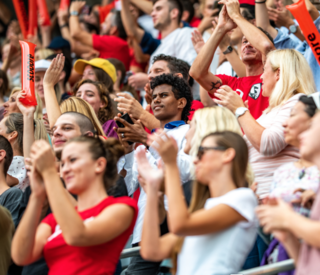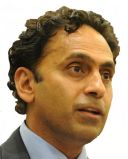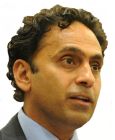Attention
Power of People: Why Being in a Crowd Feels Good
Mask restrictions are dropping. It's time for crowds. It could be good for you.
Posted June 15, 2021 Reviewed by Jessica Schrader
Key points
- Being in a crowd can enhance your experience of events.
- Having people around us provides us with valuable information on the meaning of events and can help us find the best way to respond to ambiguity.
- Crowds can facilitate your own behavior and increase the effort you put into an activity.

I did something yesterday that I had not done in 15 months. I went to Costco and did not wear a mask. Yes, I am fully vaccinated and so is everyone in my household, but most businesses in Oregon still require masks inside. There were maskless people everywhere. I could see faces, beards, mustaches, moles, freckles, scars, and many more physiognomic nuances that stayed hidden for so long. People looking like people was nice. Being in a crowd was even better.
With the drop in restrictions and gatherings nationwide—the state of California being the most recent to drop all prescriptions for coverings—we will see crowds again. Are you ready? Have you missed it? Although being around people in close proximity again will take a little getting used to for some, many of us will dive right back in like crowd surfers in a mosh pit. (What, you have never done that?) And for good reason. Being in a crowd provides a realm of psychological benefits.
Humans are social animals and we gain social support and comfort from others. Being in a crowd is a lot more than a reminder that there are others to help if need be. We are designed to feel a level of heightened physical arousal where we are in a crowd. Whether we want to or not, our sensory system is on alert when we are in a big group and that actually feels good. This activation of the nervous system is protective, of course. We are nonconsciously monitoring our surroundings for threats, and having a lot of people around means a lot more monitoring. In fact, we are so used to this subliminal monitoring that when we are alone and quiet, that difference in general arousal level can be noticeable. Extroverts, in particular, will miss the absence, while introverts who are crowd-aversive, in general, will appreciate it.
This physiological arousal seems to explain a phenomenon called social facilitation. The presence of others can increase our own behavior. In a classic social psychology study, Triplett watched a person spooling fishing wire. He noticed that a person on a bike training alone rode slightly faster when riding in the presence of a partner even when it was not in competition. He took this idea onto the lab and had children spooling fishing reels. He found that when the kid was spooling alone, he wrapped the wire slower than when he spooled with company. The presence of others makes us take our own game up a notch and makes us spend more effort.
One reason that crowds make a difference is that we often rely on the behavior of others to give more meaning to our own experiences. This is even more the case when we are unsure of how to react or how we feel. Watching a play and the characters speak a line that could be a joke? The crowd laughing gives you the information you need to laugh too. In a great example of this, researchers gave people a shot of adrenaline that increased their arousal level and had them sit in the presence of another person (who was a paid actor). The participants who got the shot were not told the effects of the shot and when they felt their hearts beating faster they would not be sure what caused it. In one condition, the actors pretended to be angry. In another condition, the actors pretended to be happy. The participants reported the corresponding emotion. They used the actors to interpret their own feelings and actually labeled them according to what they saw the actor playing. Crowds give us information.
In my favorite example as someone who teaches, crowds can also influence learning. In a recent study, researchers had students listen to a short lecture with another student. Again, the second student was a paid actor who either acted distracted or acted as if they were paying a lot of attention. When placed with a distracted actor, the participant was more distracted. When with an attentive actor, the participant paid more attention and actually did better on a test of the material they had listened to. In a similar effect of the power of crowds, another recent study found that when a group of students all looked at the same parts of a video at the same time, with synchronized eye movements, they also did better on a test of material they were looking at.
Crowds also make experiences richer. Watch a movie in a packed movie theatre and you will actually enjoy the movie more as you get to hear the oohs, and the ahhs, of the crowd. One of my favorite experiences was watching the Jurassic Park movies in a large, packed cinema. Those dinosaurs seemed way more scary than when I watched similar fare alone. Similarly, going to a rock concert with thousands of other fans adds to the satisfaction and experience. In both of these cases, it is not just the louder sounds or the bigger screen, it is the actual presence of others that can make the experience better. Crowds make experiences more exciting and enjoyable.
As we all look forward to going back to a sports stadium, perhaps to cheer on our favorite football team, having many people around us also cheering along will make us all feel much much better. There is a reason many post-apocalyptic movies featuring crowdless solitary explorations are unnerving. There are reasons why teams like to play in front of a home crowd. There are reasons why we have all missed it so much. The physical and psychological boosts of a crowd are hard to do without.


